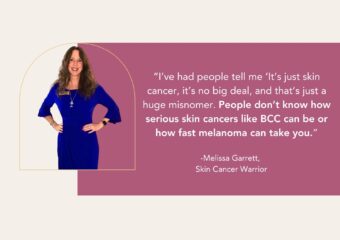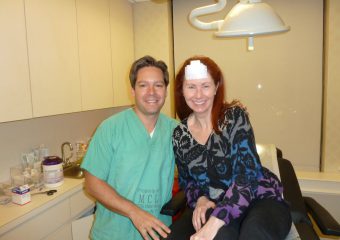Good Morning America host and weather anchor Sam Champion is no stranger to skin cancer. After his first bout with the disease at age 26, Sam has had multiple skin cancers removed and is familiar with the warning signs of the disease. But even he was surprised by the appearance of his most recent basal cell carcinoma (BCC), so he’s speaking up about the importance of regular skin exams, getting to know your skin and trusting your instincts.













